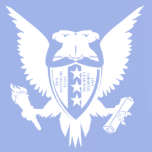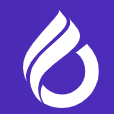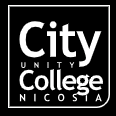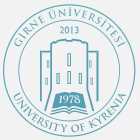Detailed introduction of Frederick University:
Introduction and Overview
Frederick University is one of the largest private universities in the Republic of Cyprus. It has obtained academic certification from the Ministry of Education of China and enjoys a high reputation in the domestic and international education circles.
History and Establishment
The school was established on September 12, 2007, but its predecessor was the Nicosia Technical and Economic School established in 1965. Since 1975, it has provided higher education courses as Frederick Institute of Technology. After Cyprus passed the relevant laws allowing the establishment of private universities in 2006, Frederick Institute of Technology applied to establish Frederick University.
School Strength
Faculty: It has a faculty composed of talented, energetic and diverse academic staff. They have rich experience and expertise in their respective fields, are student-centered, and are committed to providing students with high-quality education and services.
Academic research: It is one of the leading research institutions in Cyprus, with 43 active research teams. In the past decade, it has successfully completed more than 200 research projects, and its research has been supported by Cyprus and the European Union.
International cooperation: It maintains close contact and cooperation with other European and international universities. It is a member of the Sustainable Development Solutions Network and one of the founding members of the Cyprus Sustainable Solutions Network branch.
Nature of the institution
Private university.
Educational philosophy
Adhering to the spirit of student-centeredness and serving the public, it is committed to providing innovative and high-quality learning courses, focusing on academic research and innovation, and cultivating students with the knowledge, skills and free thinking ability required to meet the challenges of the modern world.
Key laboratories and disciplines
Key laboratories: In the past decade, the school has established advanced laboratories in all research fields, many of which have performed well internationally.
Key disciplines: Research in disciplines such as engineering, information technology, social sciences, finance and education is relatively prominent, and it also has certain advantages in architecture, civil engineering, electrical engineering, computer science, pharmacy, psychology and other majors.
Faculty
The school has 5 colleges and 12 departments, offering more than 80 study courses covering a wide range of academic disciplines such as engineering, science, humanities, education and art. The details are as follows:
School of Arts, Communication and Cultural Studies: offers majors such as visual communication, interior design, fashion and image design, journalism, etc.
School of Business and Law: offers majors such as business administration, accounting and finance, maritime studies, law, etc.
School of Education and Social Sciences: includes majors such as primary education, preschool education, physical education and sports science, psychology, social work, etc.
School of Engineering: covers majors such as architectural engineering, civil engineering, electrical engineering, computer science, computer engineering, mechanical engineering, automotive engineering, etc.
School of Health Sciences: has majors such as pharmacy and general nursing.
Ranking
In the QS International Trade Rankings, it is ranked 176-200 (2023).
Expenses
Tuition fees are around 5,940 euros per year, which may vary depending on the major and degree level.
Campus Environment
Campus Distribution: With campuses in Nicosia, the capital of Cyprus, and Limassol, the second largest city, it is the only university in Cyprus that operates in two cities.
Full Facilities: The campus is equipped with modern teaching facilities and advanced laboratories to meet the needs of teaching and scientific research. At the same time, it also has a library, computer center, sports facilities, etc., providing students with good learning and living conditions.
Multiculturalism: The school has students and teachers from different countries and regions, creating a multicultural atmosphere, enabling students to learn and communicate in an international environment.
-

European University of Lefke
-

Girne American University
-

Cyprus International University
-

Near East University
-

University of Nicosia
-

City Unity College Nicosia
-

University of Cyprus
-

University of Kyrenia
-

Cyprus University of Technology
-

European University Cyprus
-

Mesoamerican University
-

Istmo University
-

Mariano Galvez University of Guatemala
-

Regional University of Guatemala
-

Galileo University
-

Francisco Marroquín University
-

Rafael Landívar University
-

University of the Valley of Guatemala
-

University of San Carlos of Guatemala
-

Technological Institute of Tlaxcala Plateau
-

Golfo University
-

Technological University of South Sonora
-

Technological University of Huejotzingo
-

Tizimín Institute of Technology
-

Chilpancingo Institute of Technology

